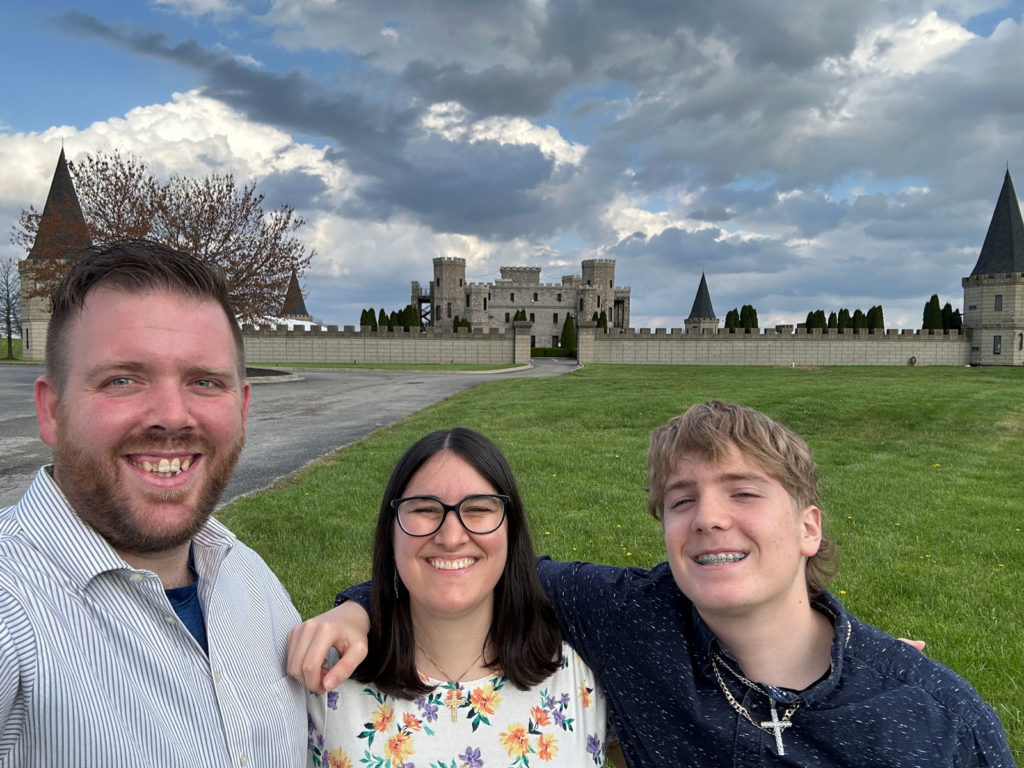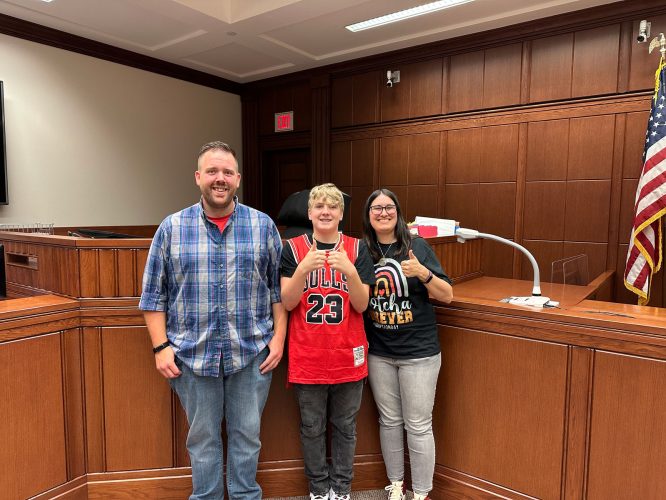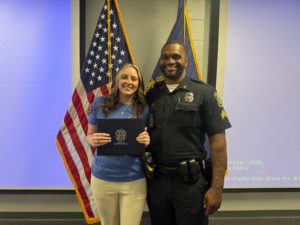LEXINGTON, Ky. – This November, Tara Pulaski, College of Social Work’s (CoSW) Children’s Justice Act Task Force and Citizens Review Panel program coordinator, is honoring how her family of three came to be and embracing their adoption and kinship journey.
Pulaski and her husband adopted their son when he was 13 years old, navigating familial bonds as a kinship caregiver. Their son, now 15, was Pulaski’s husband’s biological nephew before he was adopted after nine months.
“When we officially adopted our son, it meant permanency and stability for our family. It was a great comfort, it meant that our son was officially our child, even though he was in our heart before. It also meant that he was legally connected back to our family,” Pulaski said.
Across the nation, nearly 2.7 million young people are being raised by a relative. This care arrangement, referred to as kinship care, is necessary when parents are unable to safely care for children in their home. It is estimated that Kentucky has one of the highest rates of kinship care in the country.
For Pulaski, having that permanent family connection with her son was important to not only her and her husband, but also to their siblings, parents, and everyone involved with their son.
“We became a forever family not just with us but our extended family as well,” Pulaski said. “Our son is flourishing and doing well in school and socially. Seeing him grow as a person has been rewarding to see.”

During their adoption and kinship journey, Pulaski faced many challenges that come with raising a teenager, but having a child that was in foster care presents additional challenges with the trauma associated. Pulaski found support in resources offered by the CoSW, including Adoption Support for Kentucky, the Foster Parent Training Program, and the Kentucky Kinship Resource Center.
Through these resources, Pulaski and her husband were able to participate in trainings and webinars on trauma-informed parenting, as well as connect with caregivers that had adopted or fostered, giving them a community to connect who shared similar journeys.
“This community of caregivers was important to us because when you are adopting or fostering, you are not on a traditional journey as other parents, so it really gave us a group that understood the unique challenges, feelings, and emotions that we were having,” Pulaski said.
During National Adoption Month this November, Pulaski reflects on the representation the month brings, celebrating the non-traditional journey and reminding her that families can come together in a lot of different ways.
“Through the good and the bad and no matter what happened, we reminded our son that this was his forever home and we’re going to stay together,” Pulaski said. “That really got us through all the difficulties and challenges.”






